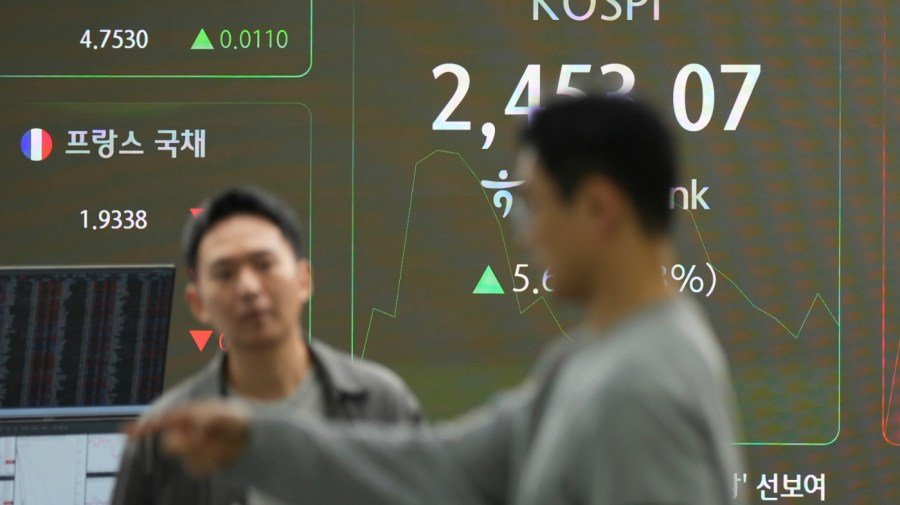
The importance of the economic relationship between the U.S. and South Korea was cast into sharp relief last week. South Korea’s Acting President Han Duck-soo was among the first world leaders to call President Trump and begin trade-rebalancing negotiations to avoid steep new U.S. tariffs.
Despite the political turbulence in both countries — the U.S. is attempting to remake the global trading order and South Korea removed its president from office early this month — the economic bond between the U.S. and South Korea remains resilient and is even poised for growth. This enduring partnership is underpinned by Korean companies’ multi-billion-dollar investments and job creation across various sectors, as well as by U.S. investment in South Korea.
Korean companies have long been integral to the U.S. economy. Since the Hyundai Motor Group hybrid and electric vehicle manufacturing plant in Georgia was announced in May 2022, the automaker’s planned investment in the state has reached more than $12.6 billion, bringing with it the creation of 12,000 direct, long-term jobs.
Hyundai also made a groundbreaking decision in March to invest $5.8 billion in a steel production plant in Louisiana to establish a fully integrated supply chain for its U.S. manufacturing operations, which will create 5,400 jobs directly and indirectly.
Samsung, LG Electronics and SK Group are among the other major Korean players that have committed billions of dollars to U.S. manufacturing and innovation. For instance, Samsung Electronics has invested more than $17 billion in its semiconductor manufacturing facility in Texas, creating thousands of high-paying jobs.
Like Samsung and Hyundai Motor, South Korea’s CJ Group is a conglomerate with several affiliates, meaning its U.S. investment is spread across multiple sectors and states.
CJ ENM and Fifth Season, the entertainment affiliate, are based in Los Angeles. CJ Logistics is in Illinois. CJ Bio is in Iowa.
CJ-owned Schwan’s Co. is headquartered in Minnesota, has a frozen pizza facility in Kansas and is building a $1 billion Asian food facility in South Dakota. CJ Foodville owns more than 150 Tous les Jours bakeries across the country and invested over $47 million in a new bakery and food processing facility in Georgia.
All told, CJ has invested $6 billion into its U.S. operations, employing about 15,000 people.
These investments are not isolated; they reflect a broader trend of Korean companies contributing significantly to the U.S. economy.
The Korea Economic Institute of America highlights that Korean companies have invested $114 billion in the United States over the past three years.
Despite the political uncertainty in both countries, there remain opportunities for Korean companies to expand their manufacturing investments in the U.S. Korean shipbuilding may be the next sector to expand in the U.S.
South Korea is the world’s second-largest shipbuilder after China. Last year, South Korea’s Hanwha Systems and Hanwha Ocean bought the storied Philly Shipyard for $100 million, establishing a beachhead in the U.S. This strategic move not only revitalized the U.S. shipbuilding industry but also aligned with President Trump’s public praise for Korean shipbuilding expertise.
The U.S.-Korea business relationship is not one-sided, and shipbuilding provides a clear example of this.
I have written about a “SHIPS Initiative” underway in Congress calling for the shipbuilding industry modeled on the effective CHIPS Act that spurred increased Korean manufacturing investment in the U.S. The U.S. Naval military-industrial base needs a SHIPS Initiative with shipbuilders from close allies, including South Korea, to bolster its capabilities and create new local jobs.
And even though Korean investment in the U.S. outpaces reciprocal U.S. investment in South Korea, U.S. companies invest in and sell there. In addition to General Motors, Ford and 3M’s long-time Korean operations, U.S. investment in digital and e-commerce industries has moved to the forefront. Amazon Web Services, Coupang and Netflix will in total invest from than $10 billion in Korea in the next couple of years.
The Korea Society, where I am president, has shifted programming in the business and economics area to focus on this new economic paradigm, namely encompassing the upsurge in bilateral investment.
These are volatile times in Washington and Seoul. The speed and scale with which events are unfolding is remarkable, unpredictable and, at times, worrisome. But the U.S.-South Korea economic partnership has deep roots in both countries that should not only enable it to weather the storm, but even expand into new sectors.
Thomas Byrne is the president and CEO of the Korea Society. Previously, he was the Asia-Pacific Regional Sovereign Risk Manager for Moody’s Investors Service.


